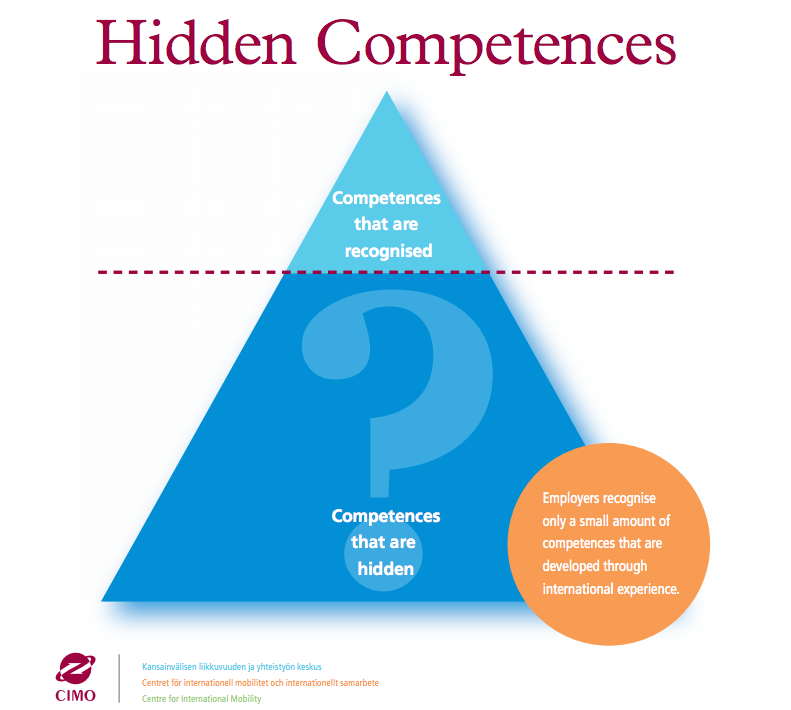International skills and competences, developed through international experiences during study or practical training, are an asset on the labour market. Or so we assume. But do we know this?
In 2012–13, the Centre for International Mobility (CIMO) and the think tank Demos Helsinki examined how employers rated the skills and knowledge acquired through international experiences in their recruitment. We also wanted to gain a better understanding of employers’ views and expectations on international experiences.
The report from this project – Piilotettu osaaminen (Hidden Competences), available in Finnish – confirmed the findings from an earlier CIMO report (2005) that employers do not necessarily value learning mobility experiences. Our new research further studies international experiences in relation to working life, and it suggests new ways of defining the learning outcomes of international mobility and co-operation. This Faktaa – Facts and Figures publication summarises the key findings of the research project in English. It was edited from the research report by Juha Leppänen at Demos Helsinki and by Mika Saarinen, Mikko Nupponen and Maija Airas at CIMO.

